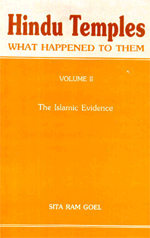|
 Page 1
Page 1
The Prophet had kept his mission concealed for three years after he received the first revelations. The Muslim brotherhood had functioned as a secret society. Ibn Ishãq gives a list of persons who had joined.1 The advantage of the darkness for the first few years was great. The darkness saved it from being crushed at the outset. Ridicule and contempt could be more easily endured when some hundred persons were involved, than if the Prophet had been compelled to endure them by himself. It saved him, too, from the character of the eccentric sage (such as Waraqa and others had borne), investing him from his first public appearance with that of the leader of a party; it gave the Prophet time to secure over a reasonable number of people that influence which he could exercise to a reasonable degree.2
People in Mecca had, however, sensed that something was afoot. From the first, Muslims had been directed by Allãh to offer prayers in congregation. They could not do it inside the city so long as they were an underground organisation. When the apostles companions prayed, reports Ibn Ishãq, they went to the glens so that people could not see them praying, and while Sad b. Abû Waqqãs was with a number of the prophets companions in one of the glens of Mecca, a band of polytheists came upon them while they were praying and rudely interrupted them. They blamed them for what they were doing until they came to blows, and it was on that occasion that Sad smote a polytheist with the jawbone of a camel and wounded him. That was the first blood to be shed in Islam.3 No reprisals from the pagan side are reported.
Some more incidents of a similar king happened and the offenders went unpunished. The pagans were not organised in an ideologically oriented group, secret or open, to be able to meet the challenge promptly and effectively. As it happens in every pluralistic society faced with an aggressive and determined minority, the Meccan majority showed only surprise and pain at what was happening. This state of helplessness displayed by the majority helped the Muslims to acquire contempt for it; some faint-hearted pagans chose to go over fast to what looked like the winning side. So the secret society felt sufficiently self-confident to come out in the open. People began to accept Islam, both men and women, in large numbers until the fame of it spread throughout Mecca, and it began to be talked about. Then God commanded His apostle to declare the truth of what he had received and make known His commandments to men and call them to Him. Three years elapsed from the time the apostle concealed his state until God commanded him to publish his religion, according to information which has reached me. Then God said, Proclaim what you have been ordered and turn aside from the polytheists.4
Author : Shri Sita Ram Goel
Foot Notes
1 Ibn Ishãq, op. cit., pp. 116-17.
2 D.S. Margoliouth, op. cit., p. 112.
3 Ibn Ishãq, op. cit., p. 118.
4 Ibid., p. 117. Allãhs command can be read in Qurãn, 15.8-9, 94.
|